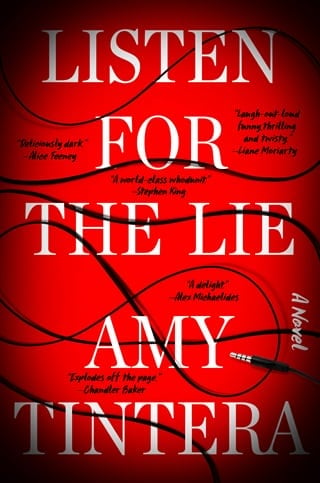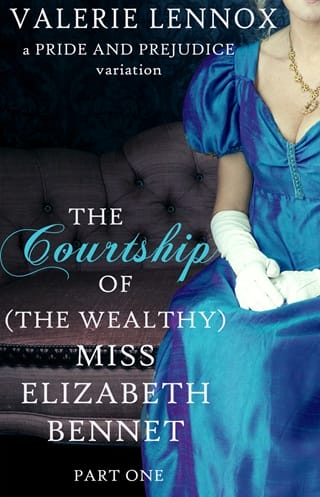34 Papal Palace at Avignon, August 1349
34
Papal Palace at Avignon, August 1349
Throughout the summer the pestilence ravaged town and village, castle and cot. Nowhere escaped its decimation. Churchyards filled up with the dead, and in the towns, pits were dug. Entire communities died and fields lay fallow. The truce with France continued, and those who remained clung to a knife edge and prayed.
Thomas travelled again to Avignon in August, hoping this would be the final time. Robert Beverley was present, and Jeanette's new representative John Vyse, but William's attorney failed to appear and sent no one in his place. Cardinal Adhemar, however, had received a letter sent directly to him from Jeanette's mother, declaring that Jeanette's testimony was not to be believed for she had been too young at the time to know what she was doing and advantage had been taken of her.
The Cardinal pushed back his sleeves and threw up his hands. ‘We are at an impasse again,' he said irritably. ‘Never have I known such a case. We cannot go forward when there is no one here to represent the Earl of Salisbury.'
‘Your Eminence, surely something can be done even without his presence,' Thomas said. ‘This case has dragged on for more than two years. What if you adjourn it again and Lord Montagu's attorney still does not appear? Is this to continue indefinitely?'
The Cardinal gave him a narrow look that suggested he thought Thomas was being discourteous, but then he sighed. ‘I will speak to his Holiness, and we shall see what can be done. For now, we shall adjourn and reconvene here in three days' time.'
Thomas swept out, his fists clenched. Beverley and Vyse joined him in the courtyard, and Thomas rounded on them furiously. ‘This is intolerable. I have done everything according to the law. Not once have I overstepped the bounds. I could have abducted my wife on the back of my horse years ago – perhaps I should have done!'
‘I doubt you would have lived in peace for very long,' Beverley said drily. ‘I do not know why Lord Montagu's attorney has not appeared to continue his presentation. Perhaps he is late, in which case the Cardinal is giving him another three days of leeway, and during that time he will speak to the Pope.' He touched Thomas's arm as Thomas gave a huge puff of exasperation. ‘We are very close to winning this. Just one more effort.'
The following day, they were summoned into the papal presence. Pope Clement sat in his great chair between two fires burning herbs and incense to purify the air. Behind him, sumptuous wall hangings depicting biblical scenes decorated the walls. The Pope, in late middle age, handsome and urbane, rested his chin on a long, pale hand and regarded them through a veil of smoke.
‘This case has been a difficult one from the beginning,' he said. ‘I would have expected its resolution long ago, but Cardinal Adhemar informs me that the attorney representing the Earl of Salisbury has not appeared, and without him we are at an impasse.' He shifted in the chair and the light gleamed on the gold thread polishing the hem of his robe, from beneath which an embroidered scarlet slipper peeped out. ‘Therefore, I have taken the decision to appoint a new cardinal and committee to adjudge this case – I am giving Cardinal Bernard d'Albi full authority to make a ruling on the first day of November.' He made a firm motion with his hand. ‘That decision will be final. There will be no more of this journeying back and forth' A signal brought two court officials forward to escort Thomas and the two attorneys away to another chamber.
Thomas had heard these sorts of promises before ad nauseam, but had no recourse to argue with the Pope. Beverley and Vyse were optimistic though. ‘We have a date for judgement,' Beverley said. ‘And that will be the end of it.' But still Thomas shook his head, unwilling to invest his faith in yet another shift of timescale.
‘Why do you think Montagu's attorney did not present himself?' Otto asked Thomas as they sat in a hostelry to eat and drink.
Thomas shrugged. ‘Perhaps because he knows the matter is a lost cause and not worth his time to put in an appearance. William Montagu has no interest in fighting the marriage now. There are rumours he is seeking to make another match. If so, then the only protest remaining is that of Jeanette's mother, and given the rest of the evidence, it will carry no weight. I suspect the Montagu attorney has decided there are more fruitful cases to pursue, closer to home.'
‘It has been a long road,' Otto said. ‘I pray that God has seen fit to finish testing you. I would have given up long before now – I can only admire your fortitude.'
Thomas shook his head. Otto's answer was not one of unqualified enthusiasm. ‘I am not admirable, brother,' he said. ‘If I have fortitude, it is because others have been staunch and supported me against all odds – I will never forget, I promise.'
Otto smiled to lighten the moment. ‘Well, that is good to hear,' he said. ‘Be sure I will always be at your side to remind you!'
Several weeks later, Thomas was standing before mounds of freshly dug earth and staring numbly at two graves side by side. His mother and his sister Isabel had both succumbed to the great pestilence during his and Otto's absence in Avignon. So many dead. After he and Otto had been so ill there and survived, he had been lulled into a false hope that God might be merciful. Now he was brought back to reality with the impact of a heavy fall. Never to see his mother again when he was so close to achieving his goal. Never to have her wisdom, or Isabel's pithy observations on his state of grace. He swallowed the painful lump in his throat as guilt and grief surged over him, for he could easily believe it was all his fault. He should have been here, instead of in France. He should have been at her bedside while she was dying. He imagined her waiting for him, waiting for news, and him not being there. And Isabel too, who thought him a reckless fool. She was probably right.
‘I do not believe it,' Otto said, wiping his eyes, and Thomas set his arm across his shoulders and hugged him fiercely, silently cursing this horrific, dark and deadly disease that trailed a slime of tragedy in its wake.
Others in the village had succumbed to the pestilence, brought by a travelling haberdasher who had spent the night in the manor. The next day he had been raving, and the following day dead, but not before he had passed the malady to several others. It had struck lightly before moving on, but had claimed a forfeit of the lives of Maude and Isabel Holland.
A letter of condolence had arrived from the Queen, and Jeanette had sent a message with the royal courier, saying how sorry she was for she knew how close he had been to his mother. She had sent, too, garlands of twisted wire flowers to lay upon the graves, and he did so now, feeling bereft that his mother would never truly know Jeanette or love the children they might have. All she had seen was the heartache and striving, not the fruition, and that knowledge hurt – deeply.
‘She loved us,' Otto said hoarsely. No matter what we did, we were still her boys – and we can never have that again.'
Thomas could not speak for a moment because his throat was so tight. ‘We should do our utmost to honour her,' he said at last, ‘and make all her sacrifices worthwhile. From this day forth, I make that my sacred oath.'
Jeanette had sworn never to set foot in her mother's Westminster house again, yet here she was, about to do so. When the messenger had arrived at court with the news that Margaret too had been stricken by the pestilence, Jeanette had been beset by a storm of volatile emotion. She had believed her mother to be indomitable, capable of outlasting everyone, and yet she had succumbed like so many others, including Jeanette's uncle Thomas, who had died in early summer.
Once again she travelled from the court to Westminster by barge. The sky was grey today with rain in the wind but she sat under a sheltering canopy of brightly coloured flags. The river, opaque and heavy with the tide, smelled brackish. She wished Thomas was here to hold her hand, but he was still absent with his family on their estates, sorting out their mother's legacy. She vowed that as soon as they could be together, they would be as one, and they would make a family without any of the contamination that had bedevilled her own. Instead of thinking about her mother, she conjured an image of Thomas, and of the life they would build to replace everything they had lost.
The sunset was a wide golden band behind her, hemming the sky beneath dark clouds and gleaming in the diamond panes of the windows, when the rowers brought the barge into the landing stage at the Kent Westminster house. Her brother was already there and greeted her as she stepped off the barge.
‘Does she still live?' Jeanette asked as he embraced her.
John shook his head. ‘She died an hour ago while you were still on your way. I arrived this morning and she knew me, but not for long.' He was dry-eyed, his mouth tight, and his face showed the strain marks that would one day become deeper lines.
Jeanette unfastened her cloak. ‘She and I had already said everything there was to be said between us,' she responded, ‘and our ways had parted long before then.'
‘Do you want to see her?'
She grimaced. ‘No, but I shall do so nonetheless.' Only by seeing her could she be certain that it was over.
John led her to the room where their mother was laid out, a silk cover draped over her body. A smell of incense permeated the chamber and the windows were open, allowing the breeze from the river to wind through the room and mingle with the scent of death and corruption. Her mother's hands were clasped upon her favourite prayer beads with the cross uppermost. Her jaw had been bound with a linen bandage and her eyes were closed, but only in the way of the dead, and a glint of pupil showed beneath the lids. Jeanette shuddered. She didn't want to go near her, either to kiss her brow or touch her body. She didn't want to think of any part of herself coming from this woman, but she could not erase that particular truth.
She crossed herself in protection, although outwardly the gesture looked like a mark of respect, and then she bowed her head and sat for a moment, before turning away. She was aware of John observing her with shrewd eyes.
‘I cannot mourn for her,' she said. ‘I do not grieve that she is dead. Let us bury her and be done.'
‘I pity her,' John said with sad compassion as they left the room.
‘Then you are better than I am, brother. The best I can say is that it is finished.'
John lightly touched her arm. ‘She gave us life, and we can thank her and give her due honour for that gift at least. She did what she thought was best, even if it was sometimes for the worst. I know you suffered, and I am sorry, but until you forgive her, you will suffer more.'
Jeanette said nothing. Let her brother believe as he wished and she would keep her own thoughts to herself.
John dug into the purse on his belt. ‘She gave me this while she could still speak, and said you should have it, for it was yours.' He took her hand and dropped her first wedding ring into her palm.
Jeanette rubbed her thumb over the cold, smooth gold and shivered, feeling sick. ‘She told me she had got rid of it.'
‘Clearly she didn't.'
Jeanette slipped the ring on to her finger. It was too big since it had belonged to Thomas – she would have to resize it by wrapping it with twine – but to have it back in her possession was a miracle. ‘Did she say anything more to you?'
‘Only that she had always done right by you and this was her last act to be taken as you willed, and that she would answer to God with a clear conscience for the rest – as you must answer to God with yours.'
That was typical, Jeanette thought. She had her own victory in regaining possession of her ring, but her mother had still had the last word that couldn't now be contradicted.
‘Let her rest in whatever peace she can find,' she said. ‘And while I will not bestow my forgiveness since she has not asked for it, I shall pray for her soul.'
A fortnight later, having dealt with her mother's funeral, Jeanette left Donington Castle to return to the Queen. The day was cold with the first chill of autumn blowing.
As she put distance between herself and the castle, a sensation of lightness filled her being. She truly was riding free, under her own hand and the future rising like the sun before her. No one was going to drag her back, imprison and threaten her if she opened her mouth. No one was going to force her to drink vile tinctures to keep her silent, to make her fertile – to make her miscarry.
She thought of Thomas and how her road to him was open, only awaiting the Avignon verdict. It had been so long since their courtship and love-making in Flanders – such a very long time – and she had been naive and untested then. A petulant girl, she admitted to herself, whereas now she was a mature young woman of three and twenty. Would Thomas have changed after all he had endured? From gallant young buck to an experienced veteran of war and diplomacy. They had barely spoken to each other down the years – except in small moments snatched from scrutiny, hidden and filled with fear and volatile, complex emotions. The young knight for whom she had felt such a fierce, liquid desire might be a very different prospect now. They had changed apart not in unison, and although she was buoyant as she rode, she wondered how it would be. What would it be like, too, to lie with him after so long a time? Would they still want each other? It was such a delicate, fragile thing. All her hopes were like beautiful eggshells, and she dared not tread too heavily for fear that they would shatter.
One of Philippa's dogs had chewed her bedspread again, and the tailors had come to remove it for repair. The scolded dog, a white bundle of fluff called Snowflake, had gone into hiding under Jeanette's chair. Exasperated, the Queen waved her hands.
‘Take him, take him!' she cried. ‘Enough is enough! The amount of cloth that animal has ruined!' She fixed her gaze on Jeanette. ‘You are clever with dogs. You have him, otherwise I will have the kennel keeper wring his neck! I should have kept with squirrels!'
‘Thank you, madam.' Jeanette wondered if being given custody of the little dog was a gift or a curse given his propensity for textile destruction. At least he and Nosewyse were playmates, not enemies. She would have to train him out of his fabric-chewing habits and ensure he had bones and sinew instead.
In the two months since her mother's funeral Jeanette was still growing accustomed to a life without constraints. She dwelt at court with the Queen as she had done throughout her childhood, acting as one of her ladies. Sometimes she saw William when the King was at court and he was attending on him, but their contact was distant. Everything was in limbo, waiting. Her brother was absent, busy about the affairs of the earldom and their mother's estate.
She scooped the little dog out from under her seat and stroked his silky white curls. The tailor and his assistant departed with the chewed bed cover, and as they left, a messenger arrived with letters from the court which Philippa retired to read in her inner sanctum.
Jeanette took Snowflake and Nosewyse for a walk along the paths outside Langley Palace. A cold wind was gusting and the last of the autumn leaves swirled inside it. Soon the light would fade and night would press against the buildings. Everyone would sit around the fire, roasting chestnuts, listening to stories, telling them, and singing songs.
Jeanette lingered, enjoying the moment alone, even while looking forward to returning to warmth and food. Nosewyse continued to following various enticing scents, Snowflake trotting at his side. A few spots of fine drizzle freckled her face, and a squire came hurrying towards her, commanding her to return to the royal apartments immediately. Her heart skipped, for she knew the Queen must have received some correspondence pertinent to her situation. It might be concerned with her mother's affairs, or it might be about her marriage.
She hurried to return, and handed custody of the dogs to the squire with instructions to find them some antler pieces to chew on. Then she went to Philippa, curtseyed, and was directed to a stool at the foot of her chair.
‘The King has sent me a copy of a letter he has received from the papal court,' she said.
Jeanette sat very still.
Philippa's eyes were sparkling. ‘I shall not keep you in suspense,' she said. ‘Cardinal d'Albi has ruled that the marriage between yourself and Thomas Holland is valid and that the match you made with William Montagu was unlawfully conducted and all ties to be severed forthwith. You and Thomas Holland are to solemnise your married state before a priest as soon as you may.'
Jeanette stared at Philippa, frozen in the moment. Through so many years of struggle and heartache she had waited to hear this, and now, with the words ringing in her head, she could not respond.
The Queen gave her a perplexed look that was almost an echo of the one bestowed on her when she had told Jeanette she was to marry William Montagu. ‘Are you not pleased?'
Jeanette tried to speak, but her vision had whitened at the edges. She felt the Queen's hand on her arm, and then someone was burning feathers under her nose and Jeanette coughed at the acrid stink.
Philippa gave her a drink of sugared rose water in a glass goblet, and as Jeanette took a few sips, her head began to clear.
‘It must have come as a surprise even though we were expecting such news,' Philippa said. ‘And I hope it is good news . . .'
‘Indeed so, madam,' Jeanette responded faintly, ‘but I have been waiting for ever to hear it. It is as though I have been pushing a boulder before me for so long that when it suddenly vanishes, I fall flat on my face!'
The Queen laughed at the comparison and embraced her. ‘Very true, and I understand. Now the verdict has been declared, we shall have your vows properly solemnised at court!'
Jeanette shook her head, still feeling numb.
‘What now?' Philippa demanded with a touch of impatience.
‘Nothing is wrong, madam,' Jeanette replied. ‘Truly this letter is my heart's delight. I know the wedding must be celebrated so that all may hear the verdict of the Avignon court and acknowledge the validity of my first marriage, but I want a moment for Thomas and I to be together. I know we can do so after our new wedding, but I want to see him and speak to him before that day. I would renew my vows every day for the rest of my life if I could. Even if we must have a public wedding, I want to see him again and have time to make time.'
Philippa's expression softened, and she touched Jeanette's hand. ‘And you shall have it,' she said with sympathy. ‘I shall make sure of it.'
‘Thank you, madam.' Jeanette swallowed tears. ‘It means a great deal to me. I have been twisted this way and that for so many years, and all I want is to be still in the moment with the man I have loved from the moment I set eyes on him.'
Philippa's eyes were suddenly liquid. ‘Leave it with me, my dear,' she said. ‘Let it be my gift to both of you.'
‘Also, William Montagu,' Jeanette said firmly. ‘None of this is his fault. When Thomas and I are wed, I do not wish there to be any humiliation for him, or people laughing behind their hands. We have come to understand each other, and I want this to be honourable for him too.'
Philippa dipped her head. ‘Do not worry, my dear, I shall see that all is in order. Now then, if you are intent on having some time with your husband before you have to share him with the court, I have some thinking to do.'
Jeanette departed Langley five days later under the escort of two of the Queen's knights and several serjeants of the household. Philippa had given her two rich velvet gowns and a chest of wimples, head coverings, belts and various fripperies, almost like a wedding trousseau.
Jeanette had no notion of where she was going, for Philippa had kept it to herself as a surprise. The leader of her escort had letters from the Queen and was smiling but taciturn, and Jeanette gave up trying to tease it out of him and set out to enjoy the journey instead.
She sat in a cart amid piles of bags, boxes and chests. As well as all the finery, Philippa had sent her with pies and pasties from the kitchens and a flask of the best wine. Heaps of furs kept her warm as did hot stones wrapped in blankets placed underneath the seat bench in the cart. The road was reasonable and the potholes they encountered not too deep. Yesterday's rain had only been a brief flurry, and the road was clear.
The journey took them the best part of the wintry day, but they arrived at the royal manor of Havering on the banks of the Thames as dusk bruised the late afternoon sky. Jeanette had known their destination for several miles, having recognised the landscape, and had started to smile, for Havering was one of her favourite places – less grand than Windsor, not as sprawling as Westminster, and the way the light caught the windows always gave her the impression that the buildings were smiling at her in welcome.
Messengers had ridden ahead, and in the courtyard torchlight she saw a man outlined in the carved doorway and her heart began to pound. The last of the dusk and the glimmering flame shone on the gold embroidered damask on his sleeve and belt fittings.
‘Thomas,' she whispered, feeling light-headed.
The cart stopped and the horses stamped and snorted, steam rising from their coats and nostrils. Thomas left the doorway and came round to the back of the cart where an attendant was attaching some wooden steps. Taking her hand, he assisted her down, and Jeanette thought she might faint.
‘My lady wife at last,' he said, and faced her, taking her other hand too. They stood looking at each other in the courtyard, surrounded by bustle but alone in stopped time. ‘I received a letter from the Queen telling me to come here,' he said. ‘That she was sending you to me, and me to you, and I almost thought it was a dream.'
‘I thought I was dreaming too.' She had to drop her gaze, for the fire was almost too hot to endure.
The escort leader cleared his throat, and with an effort Thomas turned his focus outwards and issued orders with regard to the stabling and dealing with Jeanette's baggage. Then he led her inside to a chamber usually occupied by important guests. Beeswax candles glazed the room with soft light, and a welcome fire burned in the hearth.
Food had been set out on a table spread with a white cloth with all manner of small, tasty delicacies to tempt the palate without being a surfeit. Wafers and tiny marrow tarts, and savoury morsels of pork and parsley with various sauces. Goblets of green glass twinkled, and there were two cups of jewelled silver – all the trappings of the court, but much more intimate.
Thomas took her hands again. They had not kissed yet and Jeanette knew that once they began, they would not cease until they had disappeared into each other and become one, and that it was a moment to savour, for it would never come again in their lives.
‘It has been so long since we have been alone,' he said. ‘And even then, we knew we were chancing fortune and could have been parted and punished at any moment. But now we have our freedom to be together, and I swear to you that with each breath I take, even to my dying one, you will be free. Whatever you want from me, it is yours. I own the blame for what happened before. I should have stayed, I should have spoken out, and I swear on my oath as a knight that I will never desert you again – never! You are my true wife in chastity and in love for ever.'
Jeanette was so moved and overwhelmed that she could barely think, let alone speak. She touched his face and brushed her fingertips over the scar at his temple and his blind eye. ‘This is all that I have ever wanted. If I have this, I need nothing more – no kings and courts, no silks, no gauds and decorations. Just you. I gladly give them all up.'
‘Truly? You would follow me across countries and battlefields clad only in your shift?'
She lifted her face to his. ‘Yes, I would, and never regret it.' And in that moment, it was true.
He kissed her then, and she closed her eyes, and the world went away.
 Fullepub
Fullepub 



